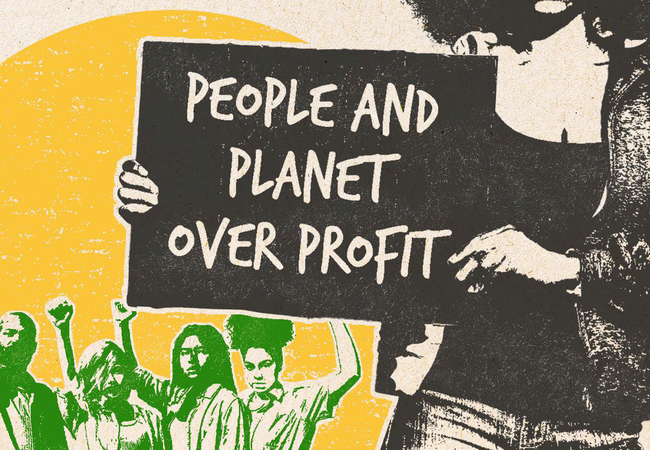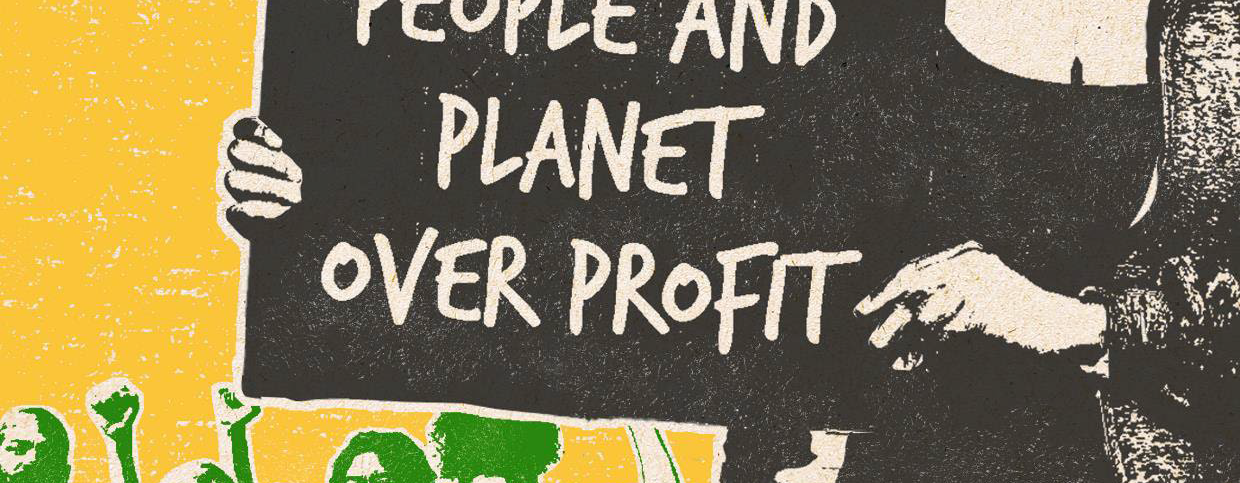Fair taxes on the UK’s biggest polluters – including fossil fuel companies, frequent flyers and the extremely rich who use private jets – could have raised up to £23bn last year, according to a report published by Oxfam today.
Illustrative modelling suggests that if the UK Government had spent just over a fifth of this extra revenue on green public transport in England, up to £371.39 million in additional funds would have been available to the Scottish Government; enough money to more than double existing spending – currently £359 million – on concessionary travel schemes in Scotland.
The report, Payment Overdue, Fair ways to make polluters across the UK pay for climate justice, shows that by targeting those who are most responsible for emissions, the UK Government can quickly and fairly raise significant funds for climate action while ensuring the burden does not fall disproportionately on ordinary UK households.
Campaigners highlight that while a cost-of-living crisis, surging energy bills and high inflation are piling particular pressure on lower-income households – oil and energy companies raked in record profits in 2022 and have reported billions of pounds more in profits so far this year.
Finance for climate action must be raised and spent fairly to avoid entrenching existing poverty and inequality and to maintain public support for the transition to net zero.
The report recommends the UK Government enacts a series of common-sense revenue raising measures including a redesigned excess profits tax on fossil fuel companies; redirecting existing fossil fuel subsidies; a frequent flyer levy and new taxes on the use of private jets and superyachts; as well as ringfencing 20 per cent of the proceeds from a system that fairly taxes wealth for climate action.
Oxfam Scotland says that subsequent additional public spending on domestic climate action in England by the UK Government would boost the Scottish Government’s budget via Barnett consequentials. Where possible, these new funds should also be used in Scotland to cut emissions in ways which simultaneously support action on poverty, for example, through an expansion of free public transport.
Oxfam Scotland says First Minister Humza Yousaf should now urge the Prime Minister to hold the UK’s biggest polluters to account, ensuring they pay for their damage.
Lewis Ryder-Jones, Policy and Advocacy Adviser at Oxfam Scotland, said: “With global temperatures soaring, now is the time for the Prime Minister to turn up the heat on fossil fuel companies and the high-emitting behaviours of the wealthiest people.
“It’s simply not right that around the world and here in Scotland people on low incomes face paying the price for a crisis they did least to cause. The First Minister must send the Prime Minister a clear message: there can be no more buck passing: it’s time the biggest and richest polluters pay for the damage they’re causing.”
Oxfam Scotland says that increased funding flows to Scotland could have made buses free for many more people on low-incomes, such as people in receipt of social security payments and many unpaid carers. Currently, only young people aged under 22, those aged over 60, and eligible disabled people can travel free by bus in Scotland, even though buses are disproportionately relied upon by people living in poverty and women,
Campaigners say that extending concessionary bus travel would be an important step towards making public transport free for everyone: helping the Scottish Government meet its twin goals of reducing the number of kilometres travelled by car alongside slashing carbon emissions by 75% by 2030. Transport is currently Scotland’s biggest emitter, generating more than a quarter (26%) of the country’s carbon emissions.
Alternative measures which could be funded from additional revenues include boosting energy efficiency in low-income households, which would both cut emissions and household bills.
Oxfam Scotland says the First Minister must simultaneously urge the UK Government to act and use devolved powers to both raise more money for climate action and incentivise high-emitters in Scotland to change their behaviour by making them pay for their damage. Additional revenues generated must fund transformative climate action in ways that protect the pockets of the poorest households.
Lewis Ryder-Jones said: “By taking action to make polluters pay, and then spending the revenue on climate action, the UK Government can provide all UK nations with a significant financial boost. In Scotland, that means more to invest in a transition to net zero that is not only quick, but also fair.
“The prospect of significant new funds coming to Scotland should drive the First Minister to press the UK Government to act now; but he shouldn’t simply sit and wait. Instead, Humza Yousaf must get on and use all the levers at his disposal to make polluters pay for their damage. The climate bill is large and growing: it’s time for those who have done the most climate damage and who have the greatest financial capacity to pay up.”
Last week, Oxfam Scotland and more than 50 other organisations urged the First Minister to deliver on his commitment to explore “bold” income and wealth tax reforms and highlighted a range of fair tax options which could be implemented using devolved powers, with each raising hundreds of millions more to invest in key national priorities, including climate action.
/ENDS
For more information and interviews, please contact: Rebecca Lozza, Oxfam Media and Communications Adviser, Scotland and Wales: rlozza1@oxfam.org.uk / 07917738450
Notes to Editor


